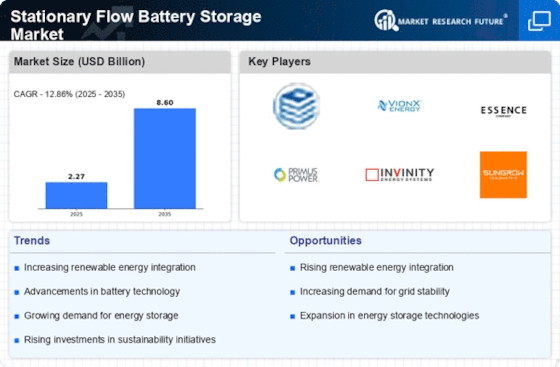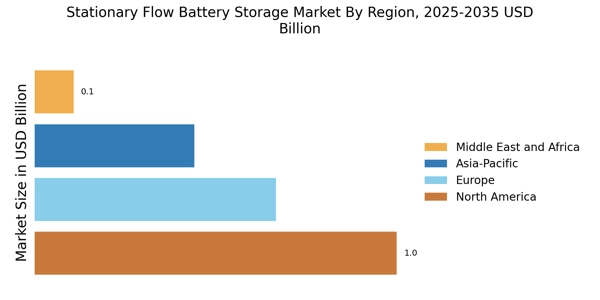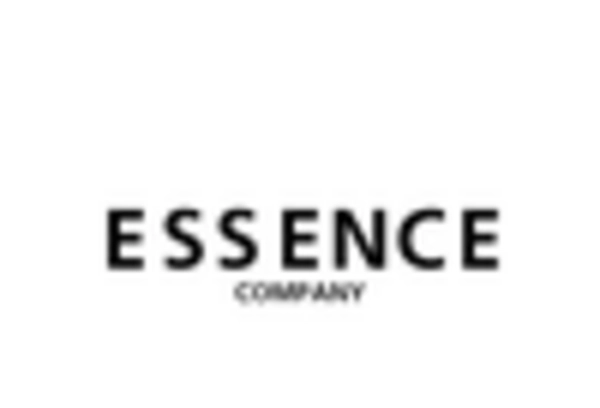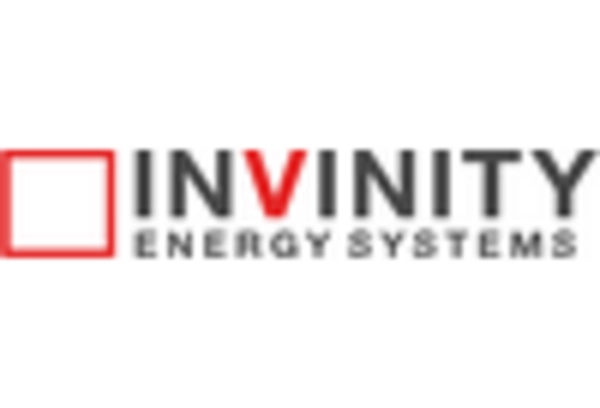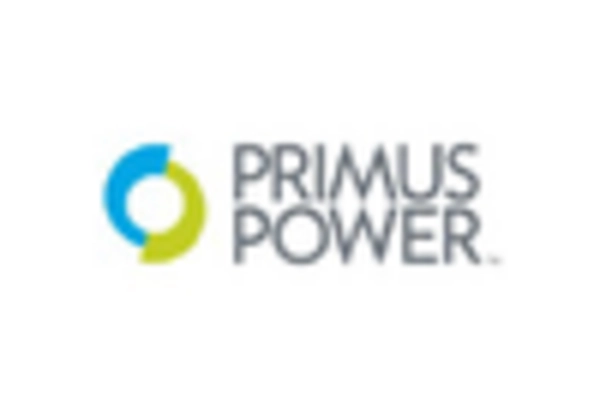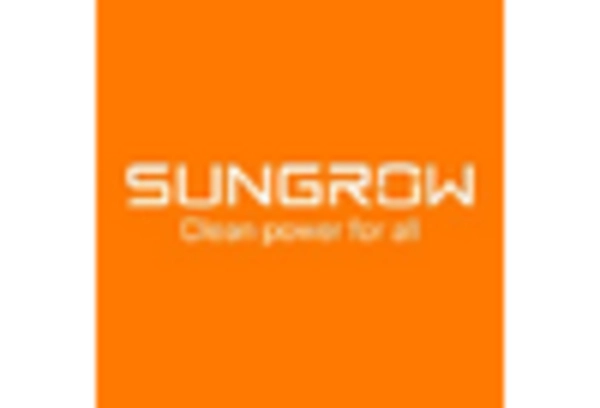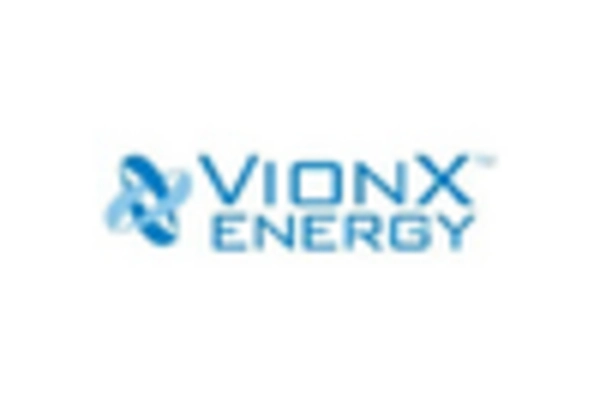Growing Need for Energy Security
The Stationary Flow Battery Storage Market is experiencing a notable surge in demand due to the increasing need for energy security. As energy systems become more complex and vulnerable to disruptions, stakeholders are seeking reliable storage solutions to ensure uninterrupted power supply. This trend is particularly evident in regions with aging infrastructure and a growing reliance on renewable energy sources. The market is projected to grow at a compound annual growth rate (CAGR) of approximately 20% over the next five years, driven by the necessity for resilient energy systems. Furthermore, the integration of flow batteries into existing grids enhances stability and reliability, making them a preferred choice for utilities and large-scale energy consumers.
Rising Adoption of Electric Vehicles
The Stationary Flow Battery Storage Market is also influenced by the rising adoption of electric vehicles (EVs). As the demand for EVs increases, so does the need for efficient energy storage solutions to support charging infrastructure. Flow batteries, with their ability to provide long-duration energy storage, are becoming increasingly attractive for managing the energy demands of EV charging stations. This trend is expected to drive market growth, as the synergy between EVs and stationary storage solutions becomes more pronounced. Analysts suggest that the integration of flow batteries in EV charging networks could lead to a 15% increase in overall energy efficiency, further solidifying their role in the energy landscape.
Increasing Demand for Grid Modernization
The Stationary Flow Battery Storage Market is witnessing a growing demand for grid modernization. As aging electrical grids face challenges related to reliability and efficiency, the integration of advanced energy storage systems becomes essential. Flow batteries offer unique advantages, such as scalability and long-duration storage capabilities, which are critical for balancing supply and demand in modern grids. The market is expected to see a substantial increase in investments aimed at upgrading grid infrastructure, with flow batteries playing a pivotal role in this transformation. Projections indicate that investments in grid modernization could reach upwards of $100 billion over the next decade, further propelling the growth of the flow battery storage market.
Supportive Government Policies and Incentives
Government policies and incentives play a crucial role in shaping the Stationary Flow Battery Storage Market. Many governments are implementing favorable regulations and financial incentives to promote energy storage technologies. These initiatives often include tax credits, grants, and subsidies aimed at reducing the initial investment costs associated with flow battery systems. For instance, certain regions have reported a 30% increase in installations due to such supportive measures. As governments continue to prioritize energy transition and sustainability, the market is likely to benefit from enhanced funding and policy frameworks that encourage the adoption of flow battery technologies.
Technological Innovations Enhancing Performance
Technological innovations are significantly enhancing the performance of the Stationary Flow Battery Storage Market. Recent advancements in battery chemistry and design have led to improved energy density, cycle life, and cost-effectiveness of flow batteries. For example, new materials and manufacturing techniques are being developed that could reduce production costs by up to 25%. These innovations not only make flow batteries more competitive against traditional storage solutions but also expand their applicability across various sectors, including commercial, industrial, and utility-scale applications. As technology continues to evolve, the market is likely to witness a shift towards more efficient and sustainable energy storage solutions.


